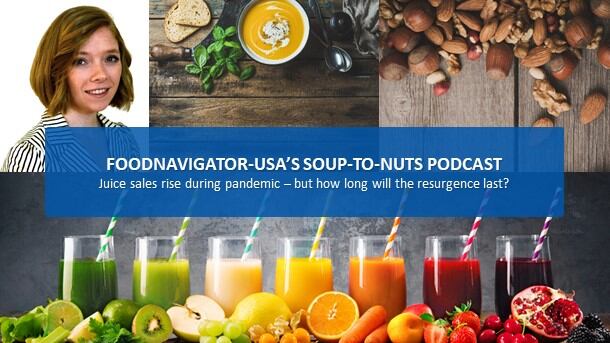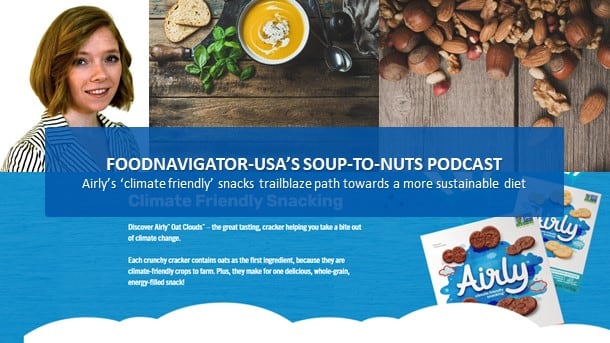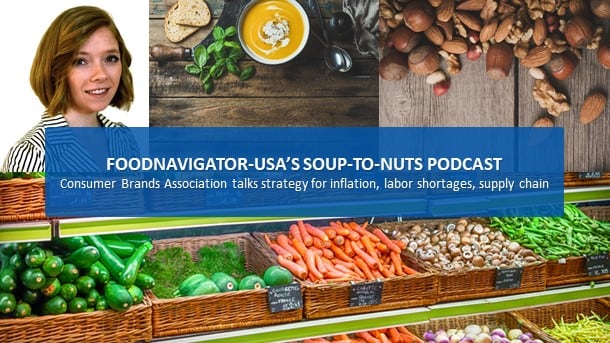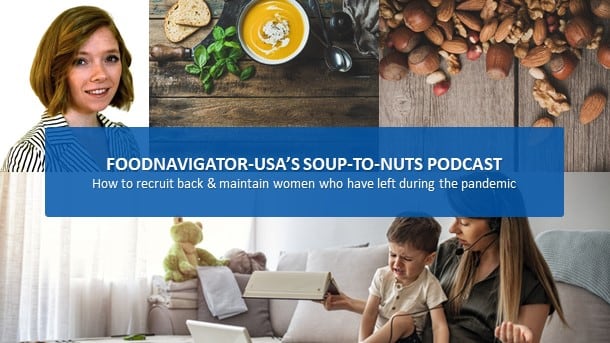According to SPINS data presented at virtual Expo West late last month, sales of conventional shelf stable juices increased 9.5% to $6.2bn in the 52 weeks ending April 18, while sales of shelf stable specialty & wellness juices grew 19.6% to $658m and shelf stable natural product juices grew 4.8% to $893m in the same period. SPINS also reports that refrigerated juices and functional beverages also climbed 12.2% to $5.4bn in the conventional market, 6.3% to $165m in specialty and wellness and 8% to $2.3bn in the natural products sector in the same period.
This is a notable reversal for the juice and juice drinks category, which data from Statista shows slowly declining from $9.95bn in 2016 to $9.79 bn in 2018.
To find out what is behind juice’s about-face, which trends from the pandemic will stick and how category players can maintain and build on these gains going forward – even as the threat of COVID-19 eases in the US, FoodNavigator-USA is joined in this episode of its Soup-To-Nuts podcast by Anup Shah, the chief marketing officer and vice president of the Juice Plus brands portfolio at PepsiCo Beverages North America, and Ilana Orlofsky, the senior marketing manager at Imbibe Drink Tank.
[Editor’s note: Never miss an episode of FoodNavigator-USA’s Soup-To-Nuts podcast – subscribe today.]
‘Juice is really seeing a resurgence during COVID’
Acknowledging that the juice industry has experienced ups and downs in the past decade, Shah says he is optimistic that the category is entering a new era of growth with the pandemic reinvigorating consumer interest in the category from multiple angles, including holistic health, permissible indulgence and relaxation, and expanded or shifting meal times.
“No doubt over the last five or six years the juice segment has been declining, but I think just is really seeing a resurgence during COVID,” and it is driven in part by 78% of consumers reporting they want vitamin C to keep their immunity system strong, and fortification with vitamins and minerals, Shah said.
Because regulatory restrictions limit health claims by foods and beverages, Shah says that PepsiCo gravitates towards ingredients that offer benefits that are well understood by most consumers and when it makes claims they meet the company’s rigorous scientific standards.
While consumer interest in immunity benefits is giving juice a boost, it is also fragmenting the category and increasing competition from adjacent segments, such as juice shot, where turmeric, ginger and elderberry are popular ingredients, warns Orlofsky.
‘Consumers are really looking for ways to permissively indulge and relax’
The second major opportunity for juice that Shah sees emerging out of the pandemic is around intentional indulgence, relaxation and self-care – which also opens the door for juice consumption during different day parts and usage occasions.
“Consumers are really looking for ways to permissively indulge and relax. In fact, 37% of our juice consumers are letting themselves indulge more in foods and beverages that they crave and enjoy,” and juice and juice drinks are one way to do that, Shah explained.
PepsiCo is already moving on this opportunity within indulgence with the launch early this year of two Naked Indulgent Protein SKUs in chocolate and vanilla. Both smoothies pack 30 grams of plant-based protein from soy and pea, but they also include 47 grams of sugar – including 36 grams of added sugar – per 15.2 ounce serving, placing them squarely in the treat category.
For a lighter option that still ticks the indulgent box, PepsiCo also added four flavors to its Tropicana Premium Drinks line between last September and January, including Summer Berry Bliss, Pina Colada, Caribbean Sunset and Strawberry Kiwi Sunrise. These options weigh in with about a quarter of the calories and less than half the sugar as the Naked Indulgent Protein smoothies.
While these products are positioned as indulgent and therefore have more wiggle room for sugar, a major barrier for juice leading up to the pandemic was its sugar content, which is why Shah says PepsiCo offers a diverse portfolio of options with different sugar levels.
“When we think about sugar, we know we have a diversified portfolio, so we have various products that meet different needs and occasions and meet those preferences,” such as Tropicana 50 with lower sugar and recently launched Frutly, which his a hydrating juice-water with no added sugar or sweeteners targeted at tweens, Shah said.
Orlofsky notes that part of juice’s sugar problem is that many juices are stripped of fiber – an ingredient that consumers increasingly want and which can enhance mouth feel and enhance sweetness without adding sweeteners.
‘Mealtime is evolving”
The third opportunity that PepsiCo sees for juice coming out of the pandemic is a shift in how consumers approach meals and snacks, with many seeing these are moments to linger over and enjoy with others.
”With more people being home spending more time with their family, that that bonding moments becoming more and more important, and I think will remain a priority, even when we get back to the new normal. In fact, 45% of juice consumers think spending quality time with the family is a higher priority now than it was pre pandemic,” Shah said, noting his family likes to eat breakfast together as a way to reset before the day becomes hectic.
More breakfasts also translates to more juice consumption, which is a popular choice to start the day, he added.
Likewise, a heavier priority placed family-time means consumers will need solutions that appeal to all ages and can meet different usage occasions and needs.
In studying this family dynamic, Shah said that PepsiCo saw a “big whitespace with older tweens,” for products that were more sophisticated than what they drank as children but still met caregivers’ nutritional requirements of vitamins and minerals but no added sugar or artificial ingredients.
The company’s solution was the launch earlier this year of Frutly – shelf stable beverage that blends water, fruit juice concentrate, electrolytes and natural flavors.
Sober curious movement opens door for juice sales
Orlofsky also sees opportunity for innovation in juice around the sober curious movement and offering adults more sophisticated non-alcoholic options.
“There’s definitely opportunity for just straight up more sophisticated flavors and uses that either can be positioned to be included as a recipe for mocktails or cocktails,” or as more premium beverages, she explained.
However, she noted, a big part of the sober curious movement is improving health, which includes reducing sugar – so juice companies should think about how much added and natural sugar are in products that they market towards this group.
Orlofsky also sees potential for blending juice with apple cider vinegar to bridge both the desire for a sophisticated adult beverage and wellness-enhancing options.
Given the versatility of juice and its broad spectrum of benefits as outlined by Shah and Orlofsky, it is easy to see why both are “bullish” on juice as a category primed for long-term growth coming out of the pandemic.




